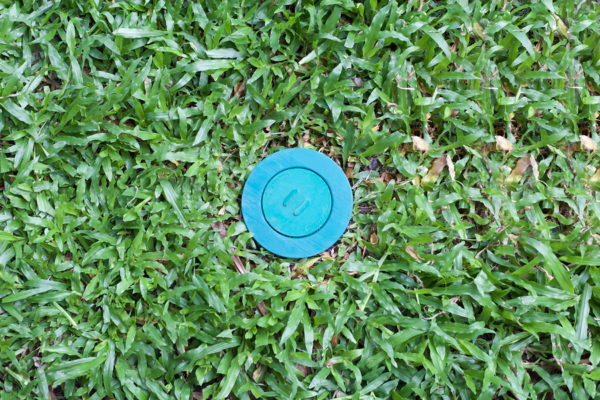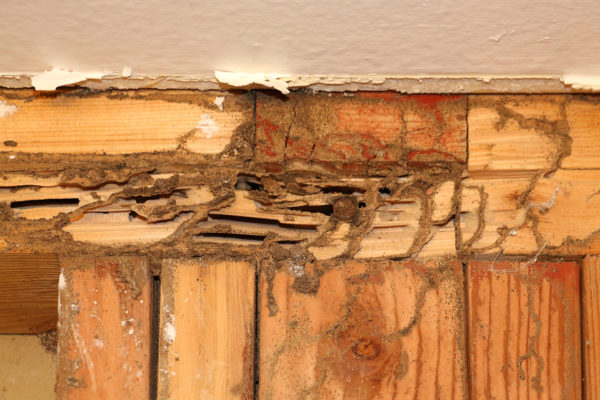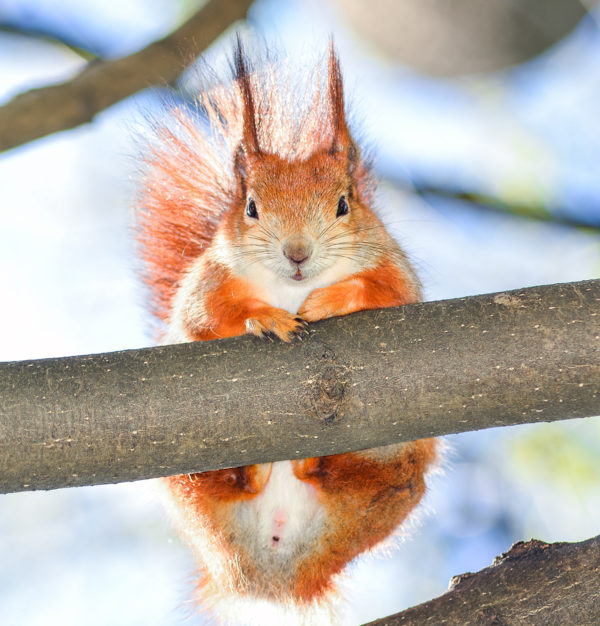
May 17, 2018 | Mosquito
Summer has arrived and with it comes warmer weather and more outdoor time. While we want to enjoy picnics and parties outside, mosquitoes will often make us the life of their party, feasting on us as unsuspecting victims. Mosquitoes are annoying as they buzz around us and can be a major nuisance if they get inside your home. They can also be dangerous, transmitting serious diseases like West Nile virus and Zika. What can you do to make your summer more enjoyable sans mosquitoes? Check out these 6 tips to prevent mosquitoes this summer.
- Protect Yourself. The CDC advises that you use mosquito repellents that are registered with the US Environmental Protection Agency. They also recommend using products that contain DEET. Use these repellents sparingly on your skin and make sure to wash up when you come inside. Mosquitoes are attracted to clothing that is dark in color or that has floral prints. Try to avoid wearing these colors during peak mosquito times. Also try to avoid wearing sweet-smelling colognes and perfumes. If you have to be outdoors, try to wear long-sleeved shirts and long pants. Spray your clothes with mosquito repellent.
- Protect Your Home. Take steps to keep mosquitoes out of your home. Keep doors and windows closed as much as possible, especially during peak season. Make sure doors and windows have screens and that the screens are in good repair. Replace screens that are beyond repair.
- Dry It Out. Mosquitoes only need 1/2″ of water to breed. Eliminate any areas of standing water around your home, including flower pots, birdbaths, and wading pools. Turn over any vessels that can hold standing water such as tarps. Make sure gutters are clear to avoid pooling water. Consider installing gutter guards to help keep drains clear.
- Mind Their Schedule. Peak activity time for mosquitoes is between dusk and dawn, and especially in early mornings and early evenings. Try to avoid outdoor activity as much as possible during this time. If you must be outdoors, wear long sleeves and long pants and make sure to use mosquito repellent.
- Avoid Triggers. Mosquitoes are attracted to carbon dioxide. People with increased metabolic rates, larger people, and pregnant women are especially attractive to mosquitoes because they expel more carbon dioxide. You also expel larger amounts of carbon dioxide when you exercise. Try to avoid outdoor activity, especially exercise, during peak mosquito times. If you must be outdoors, wear long sleeves and pants and use mosquito repellents.
- Call The Pros. If you have a problem with mosquitoes, call a professional pest control company who can provide you with a thorough evaluation and provide you with a comprehensive treatment plan.

May 4, 2018 | Termite Control
Spring is the time of year when termites swarm, emerging to mate and establish new colonies. Unfortunately, these new colonies are often established inside our homes. An average of 5 million US homes are infested each year by termites, causing an average of $5 billion in damage annually. What many people don’t realize is that termite damage isn’t covered by homeowner’s insurance policies. What’s a homeowner to do? One thing to consider is the Sentricon Always Active bait system for termite control. Sentricon is a highly effective, environmentally responsible treatment option for termites. What is included with the Sentricon system?
- Immediate Prevention. Sentricon bait is scientifically engineered to naturally enter the termite food chain and destroy both the queen and her entire colony. Sentricon begins working immediately upon installation.
- Home Termite Inspection. When you have Sentricon installed, a comprehensive property inspection is performed checking for signs of existing or previous termite infestations and damage.
- Bait Station Installation. Bait stations containing Recruit HD termite bait are installed in the soil around your home’s perimeter.
- Termite Colony Elimination. Recruit HD termite bait works 24/7 to protect your home from termites and damage.
- Continuous Monitoring. Bait stations are monitored as needed to protect your home against future termite invasions.
- Annual Termite Inspections. Annual interior home inspections for termites and pests are included at no additional charge.
- Lifetime Termite Warranty. Every installation of The Sentricon System with Always Active comes with a lifetime warranty against termite infestations and damage.
- Green Termite Control. Sentricon Always Active bait, Recruit HD, poses no hazard to groundwater and has no label restrictions for use around wells and cisterns. The Sentricon system was registered under the Reduced Risk Pesticide Initiative of the US Environmental Protection Agency and is the only termite control product ever to receive the Presidential Green Chemistry Challenge Award.
If you suspect you have a termite problem contact a professional pest control company who can provide you with a thorough inspection and recommend a comprehensive termite treatment and prevention plan.

Apr 20, 2018 | Termite Control
If you’ve been outside lately you’ve probably seen signs of spring – blooming flowers, pollen that aggravates our allergies, and lots of new insects buzzing around. Another thing that spring brings is swarms – of termites! Termites are present year round but their swarming season is during spring and early summer.
Termites cause billions of dollars in damage to homeowners each year. Here in the Southeast, subterranean termites are the most common types and are particularly destructive. These insatiable eaters can damage not only wooden structures, but have even been known to cause damage to brick and concrete homes as well. Termites can invade your home through cracks and holes as small as 1/32 of an inch!
Swarms are most common in spring and summer because they are triggered by warm, humid weather. Swarming marks the start of a new termite colony. Winged termites leave their nests when they become overcrowded and their isn’t enough food to sustain them. They then take flight and actually reproduce in mid-air. The females will then shed their wings and fall back to the ground. They then go in search of a new location to start their colonies.
Swarmers don’t usually cause any damage but once they establish their new colonies their offspring can cause significant damage – usually within 2 years. If you see flying termites it can signal one of two problems:
- There could be an existing termite problem nearby.
- Your home could potentially be at risk of a termite infestation when the swarm lands looking for a new place to colonize.
If you see winged termites inside your home this is a good indication that you already have an established termite colony inside or that there is existing damage already.
What can you do to prevent termites from coming into your home? Check out these tips to keep the termites out!
- Have regular inspections done by a termite control company.
- Do regular inspections of the outside of your home and the subfloor of your home checking for wood damage and the presence of mud tubes. (Mud tubes are pencil-sized tunnels located around termite nests, wood structures, and concrete or stone foundations.)
- Repair any damaged roof tiles, soffits, and fascia on your home.
- Keep mulch away from your foundation as this retains water and the moisture can attract termites.
- Keep your basements, attics, and crawlspaces well ventilated and dry. Consider enclosing your crawlspace completely.
- Make sure gutters are clear of debris and downspouts are working to make sure water is diverted away from your home. Consider installing gutter guards to help prevent clogs.
As always, if you suspect you have termites or find signs of damage, contact a termite control company who can come in and do a thorough inspection and set you up with a comprehensive treatment plan.

Apr 12, 2018 | Wildlife
As winter comes to an end, many animals are starting to emerge from hibernation. You may not have realized it but these animals will often take up residence over the winter in your home. Now that the weather is warming, they will start moving around in search of food and water and to try and get out. Some wildlife that get into your home are harmless but some can cause significant damage both to your home and to your health. They can leave feces behind that can contaminate the air in your home. They can chew through wires and wood in your attics and walls. So what can you do to keep these animals from seeing your home as a safe haven? Check out these tips to keep the wildlife out this spring.
- Check the outside of your home for any possible entry points and seal them.
- Repair any leaks or damaged and rotted wood around your home.
- Repair or replace damaged window and door screens.
- Use chimney caps.
- Use screens over dryer vents, air vents, and stove vents.
- Trim back trees from your roof line and shrubs from the sides of your home.
- Seal trash in containers with lids and don’t put it out until the day of trash pickup.
- Don’t leave pet food or water out overnight.
- Store unused pet food in sealed containers.
- Empty bird feeders daily.
- Keep your gutters clear or consider installing gutter guards.
- If you suspect you have a wildlife problem, contact a professional wildlife control company to safely remove any animals you may have.

Apr 3, 2018 | Mosquito, Pest Control
The South is known for many things like warm weather, sweet tea, and southern hospitality. Unfortunately, the south is also known for another thing – mosquitoes! Mosquitoes thrive in warm, humid climates like we have here in the southern United States. As the weather warms, mosquito season begins and peaks in the mid-summer months. Mosquitoes can breed in less than 1 inch of water so the South offers them a multitude of habitats to expand their populations.
Mosquito bites cause irritation and itching of the skin. Besides this nuisance, mosquitoes can also transmit diseases that can threaten the health of both humans and animals. Here are some of the most common diseases that can be spread by mosquitoes:
MALARIA
- Spread by Anopheles species of mosquito
- About 1700 cases per year in the US
- Most cases are from travelers returning from malaria infected countries
- Serious disease, sometimes fatal
- Symptoms include high fevers, chills, sweats, headache, body aches, nausea and vomiting
- Curable if diagnosed and treated promptly
- The potential for the disease to re-emerge in the US is present especially in the South
DENGUE
- Spread by the Aedes aegypti mosquito
- Rarely occurs in the US but rampant in Puerto Rico and Latin America
- Symptoms include high fever, severe headache, pain behind the eyes, joint pain, muscle and bone pain, rash, and mild bleeding (especially of the nose and gums)
- No vaccine to prevent in the US but there are vaccines registered for use in other countries
- No specific treatment; treat symptomatically with pain relievers, fever reducers, rest, and fluids
CHIKUNGUNYA
- Spread by the Aedes species of mosquito (Aedes aegypti and Aedes albopictus)
- Very similar to dengue and Zika
- Symptoms include fever, joint pain, headache, muscle pain, joint swelling, and rash
- Rarely fatal but extremely debilitating
- No vaccine to prevent
- Treatment is symptomatic with rest, fluids, fever reducers, and pain relievers
WEST NILE VIRUS
- West Nile Virus has been detected in over 30 species of mosquitoes
- Cases have been reported in all of the continental US
- Most people (8/10) do not have any symptoms at all
- 1/5 people have a high fever
- 1/150 people develop encephalitis which can be fatal
- No vaccine to prevent
- Treatment is symptomatic with fever reducers and pain relievers
ZIKA
- Spread by the Aedes species of mosquito
- Also spread by sexual contact and from pregnant mothers to their fetus
- Cases have been reported in all of the continental United States
- Symptoms include fever, rash, headache, joint pain, red eyes, and muscle pain
- Zika can also cause birth defects when passed to babies from their mothers during pregnancy
- No vaccine to prevent
- Treatment is symptomatic with rest, fluids, pain relievers, and fever reducers
PREVENTION:
Now that you know some of the diseases you can contract from mosquitoes what can you do to prevent them? Avoiding mosquito bites is the #1 way to prevent all of the diseases mentioned above. Check out these tips to avoid mosquito bites and help keep them away from yourself and your home.
- Eliminate standing water around your home, especially in old tires, buckets, plastic covers, toys, and any other containers that can hold water.
- Empty and change the water in bird baths, fountains, wading pools, and rain barrels at least once a week.
- Empty and change water in outdoor pet bowls daily.
- Check gutters for clogs which can cause water to pool. Clean them regularly, especially during the summer season. Consider installing gutter guards to help prevent clogs.
- Drain and fill any temporary pools of water around your home with dirt. Try to get your yard as level as possible.
- Keep swimming pool water treated appropriately and circulating.
- Make sure window and door screens are in good repair. Cover any gaps in walls, doors, and windows to keep mosquitoes from getting into your home.
- Keep doors and windows closed and stay indoors as much as possible, especially during the summer months.
- Keep your grass cut short and rake up any fallen leaves. Mosquitoes like to rest on grass during the day so keeping it short will eliminate this. Leaves can hold enough water for mosquitoes to breed so keep them raked up, as well.
- Replace your outdoor lights with yellow “bug lights.” These don’t eliminate mosquitoes but they do attract less of them than regular lights do.
- If you have to go outside, wear long sleeved shirts, long pants, and socks. Tuck your shirt into your pants and your pants into your socks to protect as much skin as possible.
- If you have to be outside in areas where there are a large number of mosquitoes, use head nets, long sleeves, and long pants.
- Use EPA-registered mosquito repellents but be sure to follow precautions and instructions carefully.
- Avoid using scented bath products if possible. While the connection is unknown, studies have shown that mosquitoes seem to be attracted to fragrances found in shampoo, perfume, cologne, and lotion.




